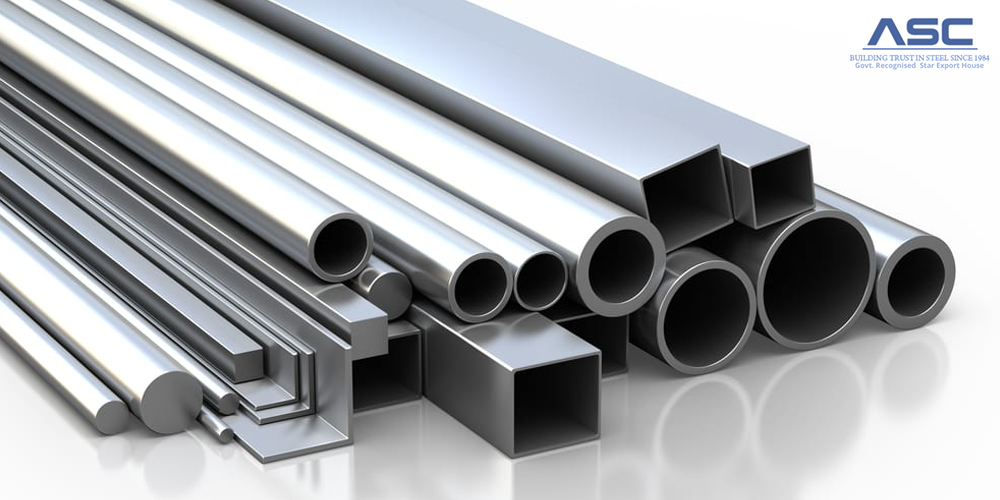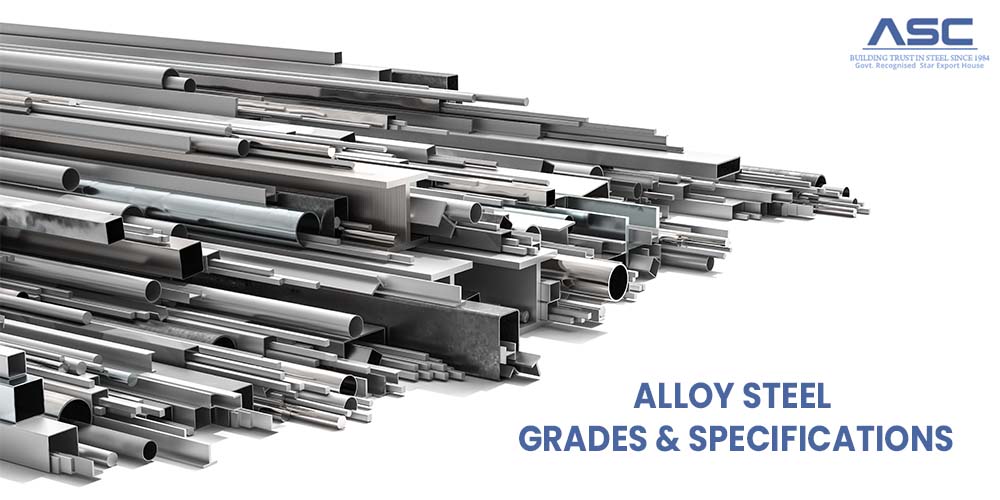How Alloy Steel is Revolutionizing the Energy Industry
by AMC
Posted on March 17, 2023 at 12:40 PM

What is Alloy Steel?
Alloy steel is a type of steel that has been alloyed with a variety of metals and elements to enhance its mechanical properties such as strength, hardness, and durability. Due to these properties, alloy steel has become an increasingly popular choice for many applications, including the energy industry.
In this article, we will explore how alloy steel is revolutionizing the energy industry, and its potential for a sustainable and cleaner future.
- Stronger and More Durable Components: One of the key advantages of alloy steel is its superior strength and durability compared to other types of steel. This makes it an ideal material for manufacturing components such as turbines, generators, and pipelines that are subject to extreme temperatures, pressures, and stresses. By using alloy steel in these components, the energy industry can ensure that their equipment lasts longer, requires less maintenance, and operates more efficiently.
- Improved Efficiency and Performance: Alloy steel's unique properties can also contribute to the improved efficiency and performance of energy equipment. For example, using alloy steel in gas turbines can help to increase their efficiency and reduce emissions by allowing them to operate at higher temperatures without warping or degrading. This, in turn, can lead to significant cost savings and a smaller carbon footprint.
- Enhanced Safety and Reliability: In addition to improved performance, alloy steel can also contribute to enhanced safety and reliability in the energy industry. Components made from alloy steel are less likely to fail, and can better withstand extreme conditions, reducing the risk of accidents and downtime. This is particularly important in the energy industry, where even minor interruptions can have significant consequences.
- Sustainability and Environmental Benefits: Alloy steel's potential for sustainability and environmental benefits are also significant. Using alloy steel in energy equipment can help reduce the carbon footprint of the industry by improving efficiency, reducing emissions, and extending the life of equipment. Additionally, alloy steel is a recyclable material that can be reused at the end of its life, making it a sustainable choice for the energy industry.
Uses of Alloy Steel in Energy Sector
- Turbines and Generators: Alloy steel is widely used in the manufacturing of turbine and generator components in the energy sector, such as turbine blades, rotors, and generator shafts. The strength and durability of alloy steel make it an ideal material for these components, which are subject to high stresses and temperatures.
- Pipelines: Alloy steel is also used in the construction of pipelines in the energy sector. These pipelines transport oil, gas, and other energy sources across long distances, often in harsh environments. Alloy steel is preferred for pipelines due to its strength, durability, and resistance to corrosion.
- Pressure Vessels: Pressure vessels are used in the energy sector to store and transport gases and liquids under high pressure. Alloy steel is often used to manufacture pressure vessels due to its high strength, toughness, and ability to withstand high pressures.
- Heat Exchangers: Heat exchangers are devices used in the energy sector to transfer heat between fluids. Alloy steel is often used in the manufacture of heat exchangers due to its high thermal conductivity, strength, and corrosion resistance.
- Nuclear Reactors: Alloy steel is also used in the construction of nuclear reactors, which require materials that can withstand high temperatures and radiation. Alloy steel is preferred for nuclear reactor components due to its high strength and ability to resist corrosion and deformation under extreme conditions.
Overall, the energy sector relies heavily on alloy steel due to its superior strength, durability, and resistance to wear and corrosion. As the demand for energy continues to grow, the use of alloy steel is expected to increase further in the industry.
Conclusion
Alloy steel has become an increasingly popular choice in the energy industry due to its superior strength, durability, and performance. By using alloy steel in components, the energy industry can ensure equipment lasts longer, requires less maintenance, and operates more efficiently. Additionally, alloy steel offers significant environmental benefits, making it a sustainable choice for the industry. As the energy industry continues to seek innovative and sustainable solutions, alloy steel is poised to play a critical role in shaping the future of the industry.

What is Alloy Steel
Alloy steel is made by combining a number of different elements, such as silicon, chromium, molybdenum, boron, vanadium, nickel, aluminum, etc.

